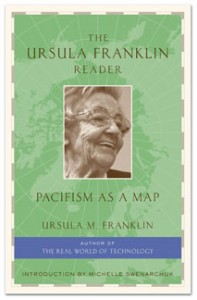According to Caroline we are all in the messiness and confusion of a liminal space but certainty at different “places”.
Kaite got to direct an exercise sculpturing a human sculpture of liminality using conference delegates.
Some feedback on exp:
Lizzie: Connected in diff ways
Jen: See people hurting and wanted to help.
Donna: stretched outside my comfort zone.
Dani: People started to lean on each other.
Dean: Not used to be in this closeness space with strangers.
Juan: Strangers?
Darlko: A crowded city bus..
Heather: When on outside woill I be picked how will it be.
Lizzie: Kate got more confortanle in how shw engafged.
Kate: I knew immediately that I wanted everyone. …. You can think of it in terms of your learning (e.g. PhD), connections
Caroline: a technique which gives a way of embodiment. Drawing on Boal’s Theatre of the oppressed.
Then we watched a TED talk about hoe to build a movement in 3 minutes. The first follower is the one who transforms a lone nut to a leader. The second follower makes a crowd. Three more now we have a movement. As the group grows the others will join to not be left out. Leadership is over glorified. Really the first follower that changed the lone nut in to a leader and then the movement. So dare to be a follower and change/build a movement.
Reflections form the critical friend’s talks.
Kaite and Juan: Exclusion of business….
Carolien we will come back to that.
Doug and Darko: actually we didn’t talk about goals. … Part of what we (education) is preparing the future business leaders. … Lilly and Astrid: We have different perspectives on “working with communities” for example ownership of projects.
Jen and Dani: Been given a lot of think about and where I (Dani) will fit into the ESJP space.
Deborah and Dean: (On Dean) Collaboration on research collaboration as part of working as a community.
Kaite and Usamn …
Heather and Andrew: Learning experience…
Jen: The balance of risk and joy. For me this meeting have been about risk of “….” and joy of community.
Lizzie: The critical friends helped me reflect. Did not anticipate this.
Caroline: Donna had a good summary of the problematic with business.
Donna: Actually Dean.. The importance of understanding oppression.
Dean: The difference between people situated in industry and representing industry
Caroline: No one has said that certain people are not welcome, people choose this themselves. … But there need to be a space to have a discussion about ESJP without being told to shut up. ….
Eric: referring to groups in the 60s who got together around certain issues. And ESJP as a group needed a space to formulate what we are about as we are quite defined by academic and business and we need a bit more time to find this. Also important to keep some homogeneousness in terms of the questions we work with.
…
Dean: It’s about being critical about the institutions, the structures which lead to outcomes we don’t want, business, academic are parts of this.
Andres: reflecting on the diversity of the group of people attending this conference…
Caroline: … Everyone is welcome who is interested in doing engineering which is social just, but not people who support structures which have been proven to cause injustice. … The kind of critical reflection involved is difficult and uncomfortable.
On to ongoing activities and where we (as a community) are going. … Caroline: … It’s OK to be anti-everything except anti-capitalist… ….
Exercise: What are the ideal final results for our community?

